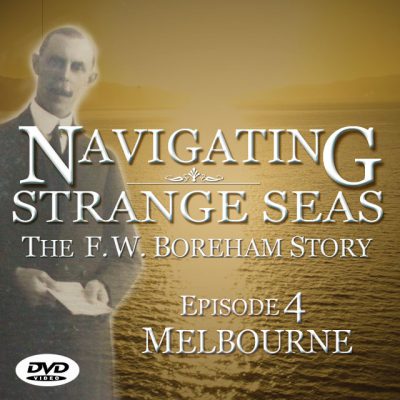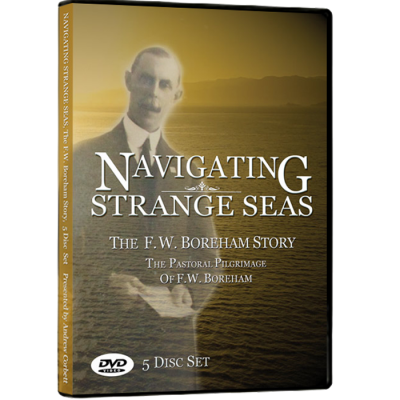home > Books by FWB > The Silver Shadow > ‘When My Ship Comes Home!’
VI
‘WHEN MY SHIP COMES HOME!’
So far as I can remember, I was never, as a child, denied anything for which I clamoured. If, in some modest moment, I begged for a peg-top, a new kite, or a fresh supply of marbles, my request was usually granted. And if, in a lordlier mood, I asked my mother for an up-to-date bicycle, for a green-crested cockatoo, for a gold watch, or for a Shetland pony, she invariably assured me that the coveted treasure should be mine when her ship came home!
Oh, that ship! How it tortured the fancy of my infancy! Not all the mystery ships of romance have involved me in a thousandth part of the speculation that I devoted to that ghostly vessel of my mother’s. I used to creep off into the dining-room; curl myself up in my father’s spacious arm-chair — my favourite retreat; give rein to my fancy; and try to imagine what kind of a ship that ship of my mother’s could be! I called to mind all the fleets that ever floated, all the squadrons that ever sailed.
I mentally reviewed all the craft on which I had made wild and adventurous voyages in the company of Clark Russell and G. A. Henty, Mayne Reid and Fenimore Cooper, Jules Verne and R. M. Ballantyne. I saw again the triremes of the Phoenicians, the galleys of Greece, the kayaks of Greenland, the junks of the Orient, the argosies of Spain, and the frowning figureheads of the Vikings. If all the ships that swept into my fancy could have met in the English Channel, why, as Rudyard Kipling would say,
There’d be biremes and brigantines, cutters and sloops,
Cogs, carracks, and galleons with gay gilded poops —
Hoys, caravels, ketches, corvettes, and the rest,
As thick as regattas, from Ramsgate to Brest
But still I was as far as ever from any solution of the tantalizing mystery. I could not imagine whether my mother’s ship was a tiny schooner, with a skipper and half a dozen men, or a glorious West Indiaman, with four dizzy masts and an infinite expanse of snowy sail. But after all — I used to say to myself, in a choice morsel of sour-grapes philosophy — after all, what does it matter? My mother has a ship, that is the main point; and some day, the most golden and glorious day in the whole world’s history, mother’s ship will come home! I had dim, hazy visions of setting off with father and mother in an exquisite flutter of uncontrollable excitement; of the journey in the train to the harbour; of the foreign sailors — including, perhaps, a few pirates and cut-throats — clustering about the quay; of the ship — mother’s ship — lying at anchor in the stream; and then of our actually going aboard, talking to the bronzed and weather-beaten sailors, and seeing the cavernous holds stored with the priceless treasures of many lands! What a day that would be, the day when mother’s ship came home!
Half the romance of life revolves about just such dreams and expectations. Does not Dr. Oliver Wendell Holmes, in The Autocrat of the Breakfast-table, tell of one such illusion that he fondly cherished? When he was a small boy, the sloop-of-war the Wasp gloriously captured two enemy ships, and then herself mysteriously disappeared at sea. She was never heard of again. But our young Oliver did not relinquish her as easily as that. ‘Long after the last real chance had utterly vanished,’ he says, ‘I pleased myself with the fond illusion that somewhere on the waste of waters she was still floating, and there were years during which I never heard the sound of the great guns booming inland from the Navy-yard without saying to myself, ‘The Wasp has come!’ and almost thinking I could see her, as she rolled in, crumbling the water before her, weather-beaten, barnacled, with shattered spars and threadbare canvas, welcomed by the shouts and tears of thousands. This was one of those dreams that I nursed and never told. Let me make a clean breast of it now, and say that, so late as to have outgrown childhood, perhaps to have got far on towards manhood, when the roar of the cannon has struck suddenly on my ear, I have started with a thrill of vague expectation and tremulous delight, and the long-unspoken words have articulated themselves in the mind’s dumb whisper, “The Wasp has come!”’
I am ashamed to say that I never now catch myself dreaming of the coming of my mother’s ship. I hope that, away in the Old Country, my mother herself still talks of the shapely vessel and her wealthy freightage. I should not like to think that my mother had lost the vision too. I do not remember the last occasion on which I seriously gave myself to the contemplation of the vessel’s coming. Perhaps it is as well. The date would have been of interest to me; but the interest would have been of a melancholy kind. For the day on which a man abandons hope of the coming of that ship is the day on which he begins to grow old.
Youth is infinitely expectant. A child can expect anything. I remember, when I was last in England, being suddenly overtaken by a terrific thunderstorm. The rain came down in torrents. When, during a lull, I left the shelter in which I had taken refuge, and walked on up the street, I came suddenly upon a little fellow in rags and tatters, sitting on the kerbstone, holding in his hand a bit of stick to which he had attached a foot of string and a bent pin. He was angling in the flood that poured turgidly along the gutter!
‘Well, sonny,’ I exclaimed, ‘have you caught anything?’
‘Not yet, sir!’ he replied, instantly and cheerily.
Mark that ‘Not yet, sir!’ There is in it a certain confession of failure, it is true; but there is in it, much more prominently, a dauntless certainty of success. Childhood never gives up hope. As a boy, I never met any other boy who actually found a pot of gold at the foot of a rainbow; but what had that to do with it? Such an irrelevant circumstance could not keep me and my brothers from setting off in quest of the magic spot on which the many-tinted pillars rested. And all the way down the deep, deep valleys, and all the way up the steep, steep hills, we nicely adjusted the exact proportions in which the fabulous spoil should be divided. And each one of us made up his mind as to the precise manner in which his share of the treasure should be spent. What castles in the air we erected as we made our way to the rainbow’s foot!
I lived in an inland town, the town of Tunbridge Wells. There was a tradition among us that, on a clear day, the sea could be seen from Crowborough Beacon — a lofty eminence eight miles away. I never saw the sea from Crowborough Beacon, and I never met anybody else who had seen it. But what — to a boy — had that to do with it? I wonder how many times I trudged those sixteen mortal miles! All the week we would lay our plans for the great expedition: the place at which we should meet; the hour at which we should start; the things that we should each of us take! And then Saturday morning came; and, full of expectancy, we set out. It always took the whole day, and we usually reached home at night too tired to sleep. We never, as I say, saw the sea ; and we never heard of anybody who had seen it. Yet all the way, along those rough and dusty roads, we talked of nothing else but of the ships that we should see from Crowborough Beacon. We should see the gleaming sails of great merchantmen bringing furs from Canada, rice from India, tea from China, or ivory from Ceylon; we should see the smoking funnels of huge liners coming, heavily freighted, from Australia or the Cape! We might — you never know — see some great battleship returning from a long spell in the Mediterranean or on the China station! Hour after hour, often beneath a burning sun, we boys trudged on along those interminable country roads, talking as confidently and excitedly of the ships that we should see from Crowborough Beacon as if Crowborough Beacon were but a pebble’s cast from the sands and the surf. I really believe that, the last time I walked those eight miles along the winding roads, among the flowery orchards and fragrant hop-gardens of Kent, I was as certain of seeing the sea from the hilltop as when I set out on that fatiguing march for the first time. A cat has nine lives, but a child’s expectancy has a thousand.
I have only lost one fortune in all my life, and that was the fortune on board my mother’s ship. I lost that on the day on which I gave up expecting it. That is why I hope that my mother still speaks cheerfully of the vessel’s coming. I should be sorry to think that she too had been reduced from affluence to penury. I said that the day on which a man relinquishes hope of the arrival of that ship is the day on which he begins to grow old, and should I like to think that my mother had begun to grow old? For shame!
Years have nothing to do with it. A man is young as long as he expects that ship to come home, no matter how many winters have left their snows upon his head. The classical example is the case of Simeon. The story of Simeon always had an extraordinary fascination for me. Even as a very little boy I used to love to hear the congregation sing the patriarch’s rapturous swan-song. However dark and dismal the night might be, however tired or sleepy I might feel, however alluring might be the attractions of the fireside, I had but to reflect that the evening service contained the Nunc Dimittis, and all difficulties instantly vanished. I made my way to the old grey church; but I am afraid I was not a reverent worshipper. I welcomed the earlier parts of the liturgy only because each, as it came, brought me so much nearer to ‘Lord, now lettest Thou Thy servant depart in peace, according to Thy word, for mine eyes have seen Thy salvation,’ I put all my soul into the singing of that sublime song; and when its last notes died away into silence, the service was over so far as I was concerned. So curiously and persistently do childish fancies intertwine themselves with early memories that I find it difficult, even at this hour, to believe that I never actually saw the aged Simeon standing beside the great marble pulpit with the wondrous Child in his arms. I have often wondered why this story, above all others, so completely captivated me. But now I understand. Simeon represented all that was best in my own boyhood. His apparent age was an optical illusion. The charm about Simeon was that, though he had lived many years, he had not begun to grow old. Like me, he sets his heart in boyhood upon seeing one day a great and wonderful spectacle; but, unlike me, he never once, through all the years, relinquished the confident hope of witnessing the fulfilment of his dream. I grew weary of waiting for my mother’s ship; Simeon’s expectancy never flagged.
It was an amazing achievement. From infancy to age he never once doubted that he should behold, with his own eyes, the coming of Israel’s golden age. Through youth, through manhood, through middle-age — the period in which most of us yield up our dreamings — through the days of grey hairs and through the days of sunset, he clung with unwavering tenacity to the certainty that he should never taste of death till he had seen the Lord’s anointed. Nobody can appreciate the splendour of the old man’s faith unless he has first reviewed the history of that eventful time. For it was not a matter of mere years. Any man can keep on hoping if there is nothing to chill his enthusiasm. But, in Simeon’s case, everything conspired to render improbable the realization of his dream.
Let any man who desires to estimate the magnificence of Simeon’s faith reach down Milman’s History of the Jews, and read again the last few pages of the tenth chapter. He will then live in one tense moment through the whole of Simeon’s life, and see the world through Simeon’s eyes. For Simeon lived through one long unbroken series of national tragedies and calamities. He saw the outbreak of the civil war; he saw faction fighting against faction; he saw the priests warring against the people; he saw the palace fortified against the temple, and the temple against the palace; and yet Simeon believed, in spite of everything, that he should see the golden age! He saw the coming of the foreign conquerors, first the Romans and then the Parthians. He saw his country reduced from proud and patriotic independence to abject and humiliating vassalage; he saw a Roman general outrage the temple by tearing aside the veil and standing defiantly in the awful solitudes of the Most Holy Place; he saw Jerusalem plundered and pillaged and sacked; and he saw the crowds of worshippers who had come to celebrate the feast of the Passover ruthlessly slaughtered by the pitiless invaders. And yet Simeon believed that he should see the golden age! Worse still, he saw religion decay; he saw the temple neglected; he saw the sacrifices cease. But still he held his faith. He never doubted his dreams; he was sure that they would all come true. He sang through the whole of the storm. He was certain that his old eyes would yet gaze upon the face of the Messiah. His was an unconquerable soul.
Did I say that Simeon was the classical example of my theme? I was wrong; and I confess my blunder with shame. What about the Child that Simeon held so gratefully in his arms and pressed so fondly to his heart? Simeon went to his grave; but that Child lived on. They crucified Him; but even as He hung upon their cross, there was a strange light in His eye — the light of an infinite expectancy — the light of a ‘joy that was set before Him,’ He ascended to the right hand of the Majesty on high; but even there He is engrossed by a deathless expectancy — ‘from henceforth expecting until His foes be made His footstool.’ He has watched the ages come and go; He has seen their superstition and their savagery, their frivolity and their indifference, their waywardness and their shame; but through it all He has felt neither doubt nor dismay. ‘From henceforth expecting.’ Serenely and radiantly He has persistently anticipated His coming glory. The kings of the earth may set themselves, and the rulers take counsel together against the Lord and against His anointed; but He that dwelleth in the heavens shall laugh — from henceforth expecting! He has seen beforehand the travail of His soul, and is satisfied. He dwells in joyous prospect in the Golden Age.
And so I am back again in the old grey church. I once more join the evening worshippers in up-raising the triumphant strains of the Nunc Dimittis. I once more seem to see — as I saw in my boyish fancy — the old man with the Holy Child in his arms standing beside the great marble pulpit. And whether I look into the wrinkled face of Simeon, or into the dimpled face of the Babe that he presses so rapturously to his breast, it is all the same. I see that holiness is hopefulness. Those who really enter the kingdom of heaven become — so said the King of that Kingdom — like little children; and a little child is always confident that, come what may, some wondrous day the ship of which he has dreamed so wistfully will certainly come home.
-F.W. Boreham
-

NAVIGATING STRANGE SEAS, The Dr. F.W. Boreham Story, Episode 1 – England (DVD)
$7.95 -

NAVIGATING STRANGE SEAS, The Dr. F.W. Boreham Story, Episode 2 – New Zealand (DVD)
$7.95 -

NAVIGATING STRANGE SEAS, The Dr. F.W. Boreham Story, Episode 4 – Melbourne (DVD)
$7.95 -

NAVIGATING STRANGE SEAS, The Pastoral Pilgrimage of Dr. F. W. Boreham – Blu ray Disc
$9.95





0 Comments